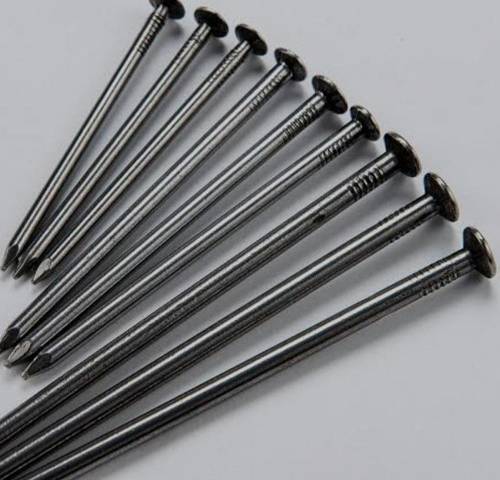In the world of construction and carpentry, it's often the simplest tools that prove to be the most indispensable. One such item is the wire nail, a modest yet powerful fastener used in a wide range of building and repair projects. While it may seem like a basic component, its role in structural integrity and long-lasting construction cannot be overstated.
The Purpose Behind the Simplicity
Wire nails are commonly made from drawn steel, offering both strength and flexibility. They're designed to join pieces of wood or other materials efficiently. Whether you're building a piece of furniture, framing a wall, or installing flooring, these nails are among the most reliable fasteners available.
Thanks to their simple design—a pointed end and a flat head—they are easy to drive in with a hammer or nail gun, making them suitable for both manual and automated tasks. They come in different lengths and gauges, allowing for diverse usage depending on the scale of the project.
How They’re Made and Why It Matters
Wire nails are manufactured from coils of steel wire. The wire is cut, shaped, and then the head is formed—usually by striking one end of the wire while the other end is sharpened. This production method allows for mass manufacturing while maintaining consistent size and durability.
The manufacturing process directly affects the nail’s strength and usability. A properly made nail won’t bend or snap under pressure, ensuring a secure hold between materials. That's why professionals always opt for nails from trusted sources that guarantee quality and performance.
Choosing the Right Nail for the Job
Not all nails are created equal. Choosing the right type can impact how well your project holds together. Here are some common types of nails used across various applications:
Common Nails
These are thick and durable, typically used in framing and heavy carpentry.
Box Nails
Thinner than common nails, they’re ideal for lighter work where preventing wood from splitting is important.
Finishing Nails
Used for trim and finishing, these nails can be sunk below the surface and painted over for a clean look.
Galvanized Nails
Coated to resist rust, these are essential for outdoor applications.
Each variety is designed for a specific job, ensuring that your work is both strong and professional-looking.

Practical Benefits in Real-World Use
There are several advantages to using wire nails in construction and home improvement projects:
- Fast Installation: These nails can be hammered in quickly, making them ideal for large-scale or time-sensitive projects.
- Affordability: They are generally cost-effective, especially when purchased in bulk.
- Compatibility: Suitable for use with a wide range of hand tools and nail guns.
- Multi-Material Use: While primarily used with wood, they can also fasten certain composite materials.
This combination of benefits makes them a preferred choice for both professionals and DIYers alike.
Tips for Better Results
If you want the best results when working with nails, consider the following best practices:
- Pre-drill holes in hardwoods to prevent splitting.
- Choose the right length and diameter based on the materials you’re joining.
- Store your nails in a dry place to prevent rust, especially if you work in humid conditions.
- Use galvanized versions for any outdoor or moisture-prone environments.
Following these simple tips can make your work cleaner, stronger, and more durable.
Conclusion
Though they may seem small and unremarkable, wire nails play a foundational role in virtually every construction project. Their strength, ease of use, and versatility make them essential in any workshop or construction site.
So, whether you're working on home repairs or leading a large construction job, the humble wire nail is one item you should never overlook.



Add Comment